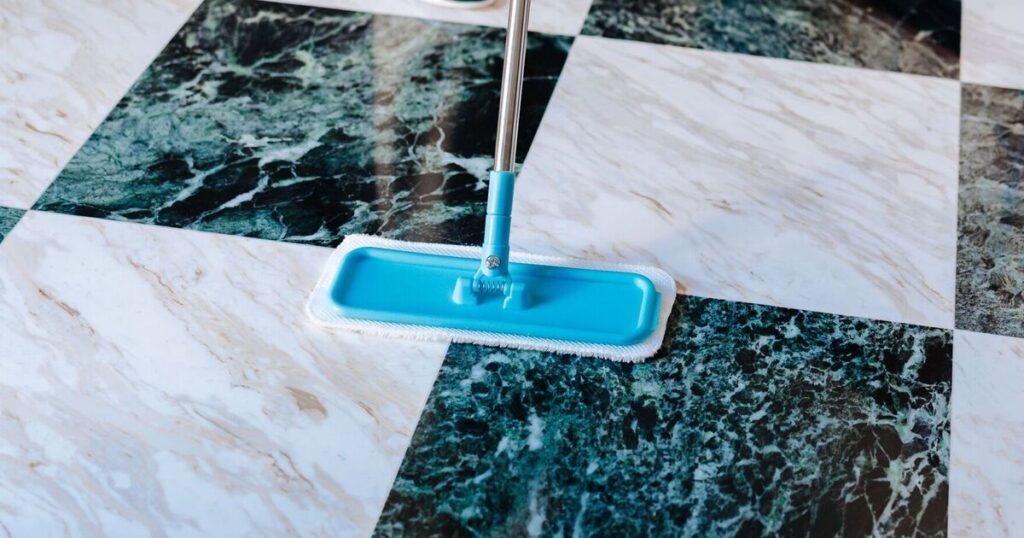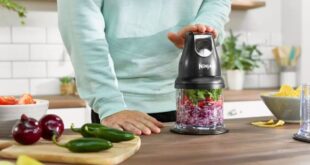
A professional luxury hotel cleaner has shared her best cleaning tips for achieving spotless, streak-free floors, and one of her suggestions includes a food item that you likely already have in your kitchen. With 18 years of experience cleaning some of London’s top hotels — including The Ritz — professional cleaner Melissa Browning has picked up quite a bit of knowledge about floors.
Now, after an exclusive interview with flooring experts at Decking Superstore, Melissa is revealing her most effective tips and tricks. She has also pointed out a common mistake she sees others make when mopping their floors and the 20p kitchen staple she swears by for achieving perfect results.
“People tend to overuse chemicals,” she explains. “They believe that if it has a strong scent, it must be clean. However, in five-star hotels, we don’t depend on overpowering products — we clean more intelligently.”
All she uses is half a lemon. Lemons serve as a potent and natural cleaning agent due to their high citric acid content, which provides antibacterial and antiseptic properties. They are versatile enough to clean a variety of surfaces, including cutting boards and countertops, and can even assist in removing odours from the refrigerator.
Most supermarkets offer lemons for just a few pennies, but prices can vary significantly. Aldi is currently selling a four-pack of lemons for 79p, which breaks down to about 20p per lemon.
“I squeeze lemon juice into my mop bucket and always will”
While many homes use heavily scented cleaning solutions, Melissa’s unique approach is refreshingly straightforward: she opts for lemon juice. “I still use a small amount of cleaner,” she says. “But I always add half a fresh lemon to the bucket. It cuts through grease, kills lingering smells, and gives that naturally fresh finish you just can’t fake.”
She began using lemon for cleaning while working on marble, tile, and vinyl floors in high-end hotels, where strong chemicals were prohibited. “Managers always commented on the shine — but really, it was just the lemon doing the work.”
It’s not only about being clean. As Melissa points out, the scent is what truly counts.”When someone walks into a house or hotel, the very first thing they notice is the scent. You could have spotless floors, but if it smells like chemicals, it ruins the feel.”
The mistake’ everyone is making’
Melissa points out that one of the most common mistakes she notices in homes is the excessive use of cleaning products. “More doesn’t mean cleaner. It means sticky floors and residue that attracts even more dirt.”
She also encourages everyone to avoid reusing mop water in different areas of the house. “Dirty water spreads germs. Change your bucket between rooms — it takes two minutes and makes a huge difference.”
Melissa’s five-star cleaning formula
- Use less product than you think – “A capful is enough. Let the water do the work.”
- Always vacuum or sweep first – “You’d be shocked how many people mop over dust and crumbs.”
- Microfibre is non-negotiable – “No streaks, no smears, and it traps the dirt better than sponge mops.”
- Add half a lemon – “It’s naturally antibacterial, cuts through grime, and smells incredible.”
- Open the windows – “Letting the air in helps floors dry faster and lets the lemon scent linger longer.”
“I’ve cleaned £700-a-night hotel suites, and I’ve cleaned small flats — and the truth is, the basics work best,” says Melissa. “Whether it’s a hotel entrance or your hallway at home, people notice what they smell before they see what’s clean. So if you want floors that shine and a home that smells fresh? Forget the chemicals. Reach for a lemon.”
How to use lemons to clean floors:
Always mix lemon juice with water before applying it to your floors. Before applying lemon juice to a large area, test it on a small, hidden spot to make sure it won’t harm the flooring. Avoid using lemon juice on hardwood floors, natural stone, or brass. After cleaning with lemon juice, thoroughly rinse the floor with clean water and dry it completely to avoid any residue or damage.
Never mix lemon juice with bleach, as this can produce toxic chlorine gas. Lemon juice can be safely used on wood floors if it is diluted and rinsed properly. It is generally safe for tile floors, but should not be used undiluted. It can also be applied to linoleum, laminate, and other sealed surfaces.
 Latest World Breaking News Online News Portal
Latest World Breaking News Online News Portal






